One important mode of cross-disciplinary facilitation and community building – two key functions of C4I – involves hosting experts as Visiting Fellows who can enhance our understanding of cross-disciplinary research and practice. The C4I Visiting Fellows are drawn from the international community of cross-disciplinary experts and represent a range of disciplines, including philosophy, environmental science, art, and education. During their term as C4I Visiting Fellows, our guest experts typically deliver a public presentation and often a master class on a topic that can add practical value to the life and work of cross-disciplinary practitioners.
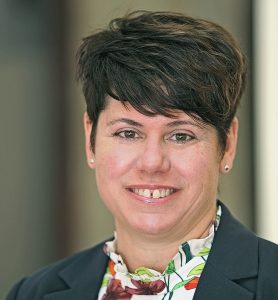
Rachel A. Ankeny
Spring 2019 Visiting FellowRachel A. Ankeny is an interdisciplinary teacher and scholar whose areas of expertise cross several fields: history/philosophy of the biological and biomedical sciences, bioethics, science/health policy, public engagement in science, and food studies. She is a Professor in History and Philosophy and Associate Dean Research at the University of Adelaide, Australia, and an Honorary Visiting Professor in the College of Social Science and International Studies (Philosophy) at the University of Exeter (UK). Rachel is well recognised as a scholar who can translate academic findings in ways that are relevant for stakeholders in a range of sectors and the broader community. For more information, please see https://researchers.adelaide.edu.au/profile/rachel.ankeny
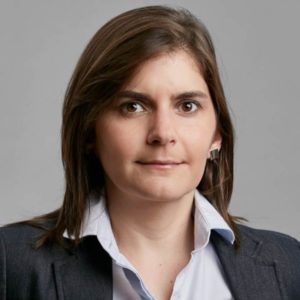
Bianca Vienni Baptista
Spring 2021 Visiting Fellow
Bianca Vienni Baptista holds a PhD in Cultural Studies at the University of Granada (Spain) and is a postdoctoral researcher and lecturer in the Transdisciplinarity Lab (TdLab) at ETH Zürich in Switzerland. She is part of the project entitled, “SHAPE-ID: Shaping interdisciplinary practices in Europe”, financed by Horizon 2020. Dr. Vienni Baptista works in TdLab’s research cluster on “Advancing methods and theories of inter- and transdisciplinarity”. Her research is framed in the field of Science, Technology and Society Studies, focusing in particular on the study of interdisciplinary and transdisciplinary knowledge production processes. As a result, she is interested in methods and tools as well as concepts and theories as means of achieving transformative and developmental change to solve multidimensional social problems. She has focused her research on the specific conditions for inter- and transdisciplinary research in different countries and on the production and social use of knowledge in developing countries, including the role of universities and other institutions.
Dr. Vienni Baptista was an Assistant Professor at the Academic Department at Espacio Interdisciplinario, Universidad de la República (Uruguay) from 2009 to 2017 and a postdoctoral researcher at the Center of Methods of the Leuphana University of Lüneburg (Germany) between 2016 and 2018. She has been invited to lecture at universities in Japan, Argentina, Costa Rica, Mexico, Colombia, and Chile. In addition to articles and book chapters, Dr. Vienni Baptista has authored and edited several books on interdisciplinarity in Spanish.

Jesse Engebretson
Fall 2018 Visiting Fellow
Jesse M. Engebretson is primarily interested in how natural resource management is performed at the ground level and how to improve it. Specifically, Dr. Engebretson’s work explores how complex – and sometimes contradictory policies – are understood and carried out by the “street-level bureaucrats” and front-line workers responsible for their implementation. Along these lines, he seeks to develop efforts to improve collaboration among natural resource workers who are often trained in different academic disciplines, speak different disciplinary languages, and hold different assumptions about the limits of their – and others’ – perspectives on land management. Ultimately, Dr Engebretson’s hope is to creatively apply of the insights of philosophy and the humanities to improve inter- and transdisciplinarity in natural resource management contexts while using rigorous social science methods to assess such applications.
Dr. Engebretson’s current research in the Department of Forest Resources at the University of Minnesota focuses largely on policy ambiguity in yardcare ordinances and its potential impact on alternative futures for yards in urban macrosystems in the United States. This work contributes to a larger interdisciplinary and cross-institutional project on the ecological homogenization of urban America.
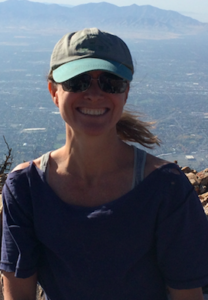
Melinda Bonnie Fagan
Spring 2022 Visiting Fellow
Melinda Bonnie Fagan is Sterling M. McMurrin Professor of Philosophy at the University of Utah. Her research focuses on experimental practice in biology (particularly stem cell and developmental biology), explanation, and philosophical conceptions of objectivity and evidence. She is the author of Philosophy of Stem Cell Biology (Palgrave Macmillan, 2013), Elements in the Philosophy of Biology: Stem Cells (Cambridge, 2021) as well as fifty journal articles, book chapters, and commentaries on topics in philosophy of science and biology. Her educational background is interdisciplinary, including Biology (B.A. 1992, Williams College; Ph.D. 1998, Stanford University), Philosophy (M.A. 2002, University of Texas at Austin), and History and Philosophy of Science (Ph.D. 2007, Indiana University). Before joining the University of Utah faculty in 2014, Fagan was Assistant Professor of Philosophy at Rice University (2007-2014) where she developed her research program and taught courses in philosophy of science, theory of knowledge and social epistemology. She is currently working on a monograph about explanation in interdisciplinary contexts, centered on social concepts of collaboration and mutuality.
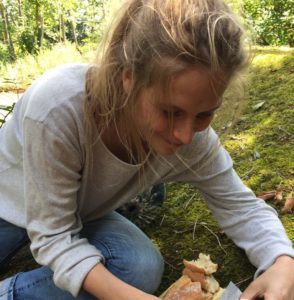
Julie Mennes
Fall 2021 Visiting Fellow
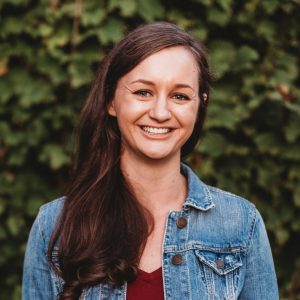
Nicole Motzer
Spring 2019 Visiting FellowAs an interdisciplinary programs manager and researcher at the National Socio-Environmental Synthesis Center (SESYNC) in Annapolis, Maryland, Nicole Motzer actively facilitates, empirically investigates, and builds capacities for scientists and scholars collaborating at the intersection of social and environmental systems. Nicole has worked directly with hundreds of graduate students and dozens of early to late career researchers from across disciplines and around the world through first-of-their-kind programs, workshops, and trainings she regularly designs and leads. Nicole particularly enjoys facilitating the collaborative development of research ideas, teaching leadership skills, and helping teams integrate qualitative data and unconventional perspectives into synthesis studies.
In addition to her extensive support for interdisciplinary research teams, Nicole is an active researcher and collaborator herself, partnering with individuals from disciplines as diverse as oceanography, sociology, and philosophy. During her time at Michigan State University’s Center for Integration, Nicole will be working closely with Bethany Laursen and Michael O’Rourke to continue amulti-institutional effort focused on evaluating integrative research products in a standardized, reproducible, and innovative way.She also currently co-leads a longitudinal, mixed-methods analysis aimed at better understanding the needs of and advancing outcomes for synthesis-oriented graduate education and research opportunities at institutional and national scales.
Nicole joined SESYNC in 2016 while completing a doctorate in Geographical Sciences at the University of Maryland, College Park. Nicole’s strongly interdisciplinary background ranges from assessing the effects of nature-based tourism on poverty and inequality in southern Africa, to investigating how food system regionalization and ender dynamics shape rural development processes in the Rocky Mountain West, to surveying trees on Maryland’s Eastern Shore and mapping water quality and invasive species in the Florida Everglades.
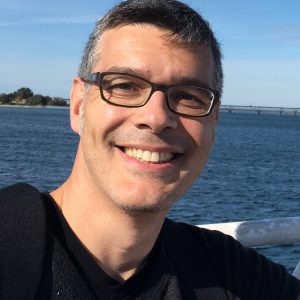
Thomas Reydon
Fall 2018 & Spring 2019 Visiting Fellow
Thomas Reydon is Professor of Philosophy of Biology in the Institute of Philosophy, and cross-appointed in the Centre for Ethics and Law in the Life Sciences (CELLS), at Leibniz University Hannover, Germany. He received his PhD degree from Leiden University, the Netherlands, where he also obtained Master’s degrees in physics and in philosophy of science. He is Editor in Chief of the Journal for General Philosophy of Science as well as the Springer book series History, Philosophy and Theory of the Life Sciences, and a founding member and Board Member of the German Society for Philosophy of Science (GWP). His research focuses on the metaphysics of biological classification; the clarification of core concepts in biology with an eye on the use of these concepts in public deliberation; and the epistemology and metaphysics of evolutionary explanations. He also has research interests in ELSI of the life sciences (currently with work on the ontology of chimeric and genetically engineered organisms, and on the integration of philosophy of science into ELSI research); responsibility in academia; and the integration of philosophy of biology and theoretical biology. While a visiting fellow at MSU’s Center for Interdisciplinarity, he will work on a research project that examines a case of interdisciplinarity in science, namely the use of evolutionary theory outside of biology, in particular in the social sciences and engineering disciplines. For further information, see his website at www.reydon.info.
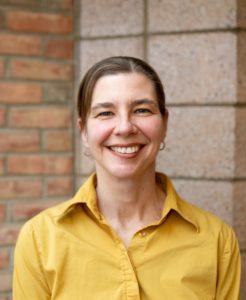
Veronica Stanich
Spring 2022 Visiting Fellow
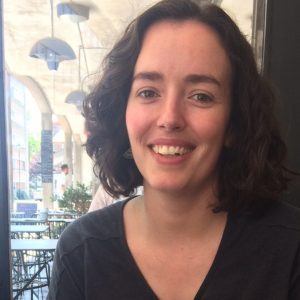
Zina Ward
Fall 2018 Visiting Fellow
I am a PhD student in the Department of History & Philosophy of Science at the University of Pittsburgh and a member of the graduate training program at the Center for the Neural Basis of Cognition. My dissertation deals with conceptual, methodological, and ethical issues surrounding individual differences in cognitive science. I am also currently developing projects on values in science and scientific pluralism. I look forward to working on all of these projects while visiting the C4I at MSU.